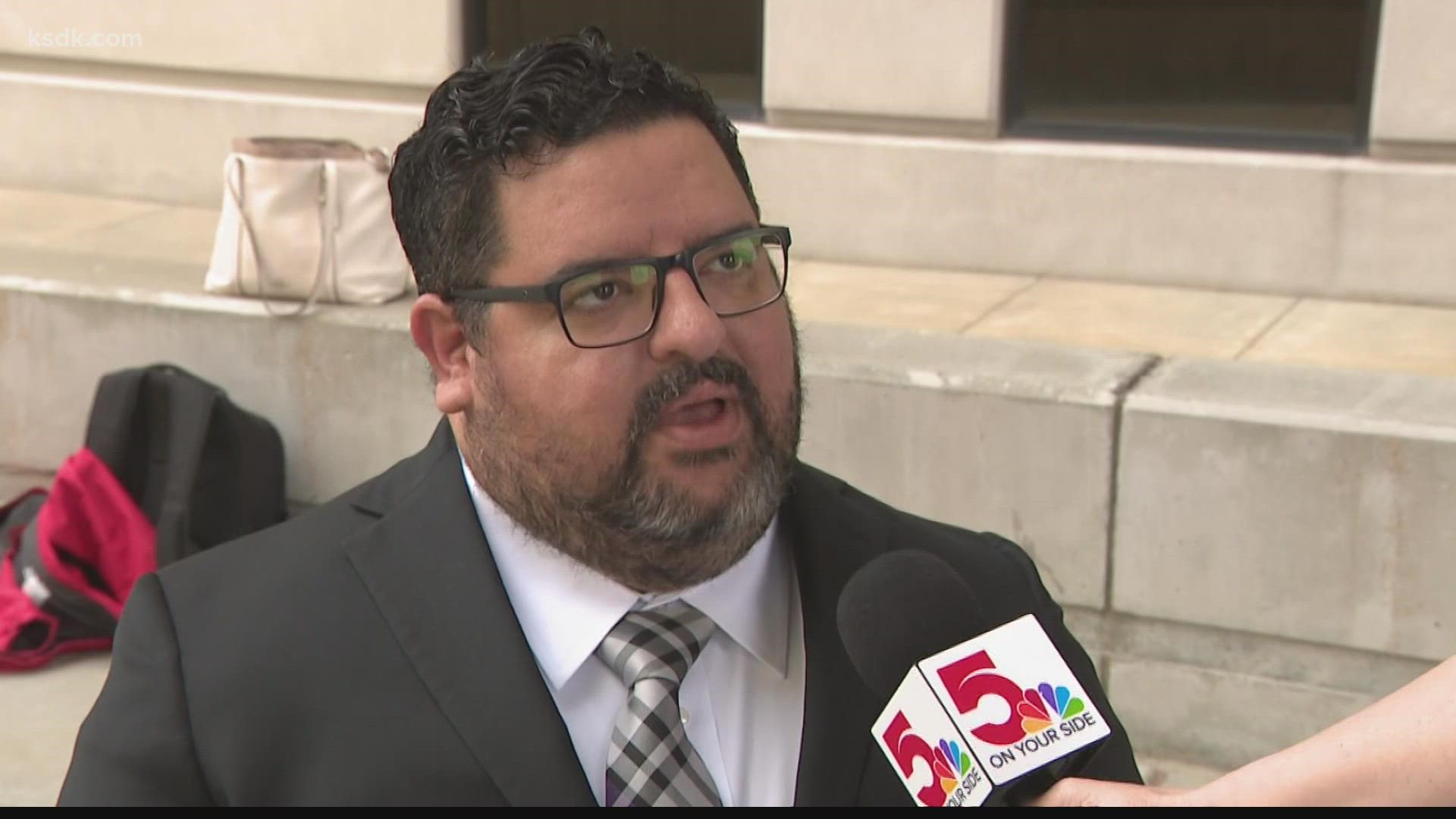CLAYTON, Mo. — A jury ruled that the maker of a bullet-resistant vest is not responsible for a former Florissant police officer’s paralysis in the line of duty.
A St. Louis County jury handed down the verdict Tuesday, the same day attorneys for former Florissant officer Michael Vernon, and the company who made his vest, Safariland, made closing arguments in the civil trial.
It’s a moment that’s been about nine years in the making.
Vernon was shot and paralyzed in the line of duty in 2012 while responding to a call about a burglary suspect. He sued Safariland in 2013 alleging there was not enough overlap on the sides of his vest to keep him protected, and that the company failed to warn him and all officers about the dangers of not having enough overlap on the sides of the vest.
"We still got our day in court after nine years," Vernon said outside the courtrooom after the verdict. "And it's on public record of what we said might be an issue with the vests and I think that once this was all said and done, I was able to still talk to some Safriland reps who would like to sit down and discuss about how we make this not happen again."
The trial began eight days ago.
Safariland attorneys argued no vest could have protected Vernon from the angled shot that struck the edge of his vest, and that the vest met the industry standards for overlap. They also noted how Safariland lead council Michelle Corrigan Erickson noted how Florissant police did not stop using the vests following Vernon’s shooting.
Vernon’s attorney John Simon recommended jurors award Vernon about $30 million – roughly $6 million for lost earnings, medical costs and future medical costs, and about $24 million in punitive damages.
“Officer Vernon would give 10 times that amount to get up, take his wife by the hand and walk out of here today,” Simon told the jury. “His loss isn’t just what was taken from him, but what would have been.”
Simon told jurors Safariland made his client’s case with their own words and evidence, including testing Safariland conducted after Vernon’s shooting on shots that hit the edge of the vest that failed 36 out of 44 times, an 81% failure rate.
“Think about the officers that don’t know about that,” Simon said. “It keeps me up at night.”
He cited National Institute of Justice documents, which showed 40 officers — or 40% of all officers who were killed between 1990 and 1999 were struck by a bullet that went in between the panels of their vests.
Simon also noted how Safariland paid a $30 million fine in 2008 for knowingly selling defective vests — one year before the company sold the vest Vernon wore.
In 2011, the company paid a $10 million fine for violating the Foreign Corrupt Business Practices Act for “bribing people to make sales,” Simon said.
Simon said it would cost Safariland about $30 per vest to add the material it would need to keep officers safe from edge shots that strike the side panels of their vests.
“Profits over safety, that’s what you heard in this case,” Simon said.
Corrigan Erickson said her client’s reputation as a company that cares about its customers is solid.
She argued Vernon had the overlap his attorneys argued is so important to stop bullets — and was told during his fitting about the two inches of overlap the company recommends.
“The idea that the overlap didn’t happen is a red herring in this case,” she said.
She said if the company included warnings about every possible scenario in which a vest might not stop a bullet, “It would be like reading War and Peace.”
And, she added, adding too much material to create overlap on an officers’ sides would make vests too uncomfortable for them to wear — causing them to not wear them at all.
“No other officers testified and said, ‘I’m concerned about this product,’” she said.
One of Safariland’s main witnesses was a former police officer who said he owes his survival during a shooting to his vest. He now works for Safariland, which also has a Saves Club for officers whose lives have been saved by their vests.
Vernon’s attorney brought up that point during his rebuttal to Safariland’s closing argument.
“Nobody from Safariland came knocking on Mike Vernon’s door after he got shot,” Simon said.

